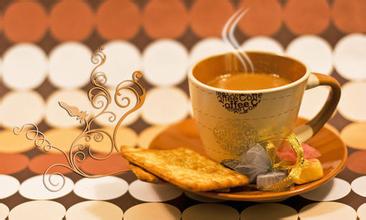Four truths about coffee: the last accident
Rumor 4: drinking coffee will make big yellow teeth?
Hey, this is really possible.
Coffee, tea, red wine and other famous colored drinks all contain a substance called tannic acid, which is dark brown. If it acts on the teeth for a long time, it will infiltrate into the inside of the teeth, causing the teeth to turn yellow.
Moreover, ordinary brushing and gargling is useless for this type of "rhubarb teeth".
Don't be sad, there are several ways to teach you:
Drink with a straw to reduce contact between teeth and coffee, suitable for iced coffee
Add milk, which contains casein, which can be combined with tannic acid, weakening the penetration of tannic acid into the teeth and reducing tooth staining.
Doctor of cloves, foreigners drink more coffee than we do. How come their teeth are so white?
The market for tooth whitening in the United States is worth $11 billion a year. You see, rumor 3: drinking coffee leads to calcium loss?
In theory, coffee increases calcium loss, but in practice:
Caffeine has only a short-term diuretic effect, and the caffeine in each cup of coffee will only increase the calcium loss of 2~3mg. If you drink coffee every day, you don't have to worry too much about calcium loss.
And, if you drink milk coffee, don't worry. Calcium from milk is more than enough to make up for milk loss caused by caffeine and oxalic acid. Rumor 2: drinking coffee on an empty stomach hurts your stomach?
First of all, you can rest assured that many studies have confirmed that coffee does not cause stomach ulcers and gastroesophageal reflux.
However, coffee does have some effects on the gastrointestinal tract, such as increasing the secretion of gastric acid, relaxing the esophageal sphincter, and promoting peristalsis of the small intestine.
My advice on the attitude towards coffee is:
If you want to drink coffee on an empty stomach, it is not recommended to choose black coffee. Try a latte with milk.
If you have gastrointestinal disease, don't die, eat something and drink coffee obediently. Rumor one: coffee is bad for the heart?
Some people have heart palpitations and headaches after drinking coffee. It has been said for a long time that coffee is bad for the heart.
But I want to tell those people who "don't drink coffee will die star" a big piece of good news:
After hundreds of years of debate, scholars have confirmed that drinking a moderate amount of coffee is actually good for cardiovascular health.
A 2014 study of 36 studies involving 1.28 million people revealed the following relationship between coffee intake and the risk of cardiovascular disease:
1.5 cups of coffee a day reduced the incidence of cardiovascular disease by 11%.
3.5 cups a day, a reduction of 15%, with the greatest benefit.
When 5 cups or more, there is no effect.
Every cup here is 150mL.
Coffee is not a magic medicine, but drinking coffee may really be a healthy lifestyle.

Important Notice :
前街咖啡 FrontStreet Coffee has moved to new addredd:
FrontStreet Coffee Address: 315,Donghua East Road,GuangZhou
Tel:020 38364473
- Prev

Communication begins with a cup of literary coffee
They offer a variety of imported coffee beans to choose from to satisfy your picky taste buds. At the same time, they also provide free door-to-door service, free regular cleaning and maintenance, free replacement of consumables, no other additional fees. At present, they are widely praised in office buildings, reception rooms, hotel western restaurants, bank vip rooms, waiting rooms, etc., without high purchase costs, convenient and quick use experience, Fengfeng
- Next

Have you ever seen shampoo made from coffee grounds?
If you don't have enough shopping, there are 17 national and regional specialty products waiting for you in the pavilion next to you. As one of the activities of this Golden Fair, the 2016 Nanjing International Fashion Consumer goods Fair and the Fifth China International Health Food Expo were held at the same time. According to reports, the exhibition attracted a total of mainland China, the United States, Switzerland, the United Kingdom and Bulgaria.
Related
- Beginners will see the "Coffee pull flower" guide!
- What is the difference between ice blog purified milk and ordinary milk coffee?
- Why is the Philippines the largest producer of crops in Liberia?
- For coffee extraction, should the fine powder be retained?
- How does extracted espresso fill pressed powder? How much strength does it take to press the powder?
- How to make jasmine cold extract coffee? Is the jasmine + latte good?
- Will this little toy really make the coffee taste better? How does Lily Drip affect coffee extraction?
- Will the action of slapping the filter cup also affect coffee extraction?
- What's the difference between powder-to-water ratio and powder-to-liquid ratio?
- What is the Ethiopian local species? What does it have to do with Heirloom native species?

